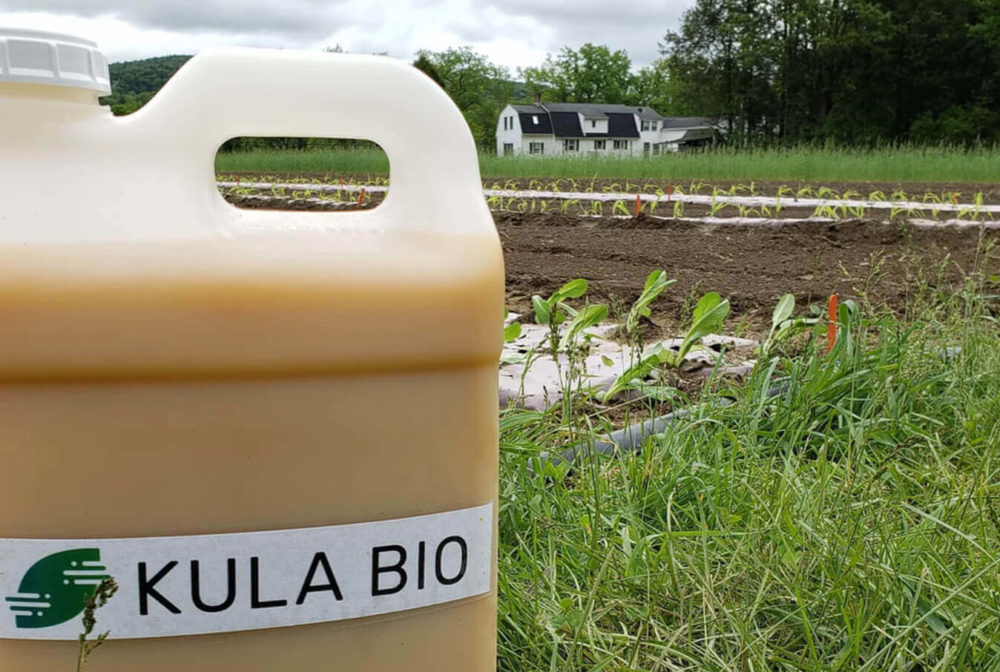Disclosure: AgFunder, which is AFN’s parent company, is an investor in Kula Bio.
Kula Bio, a startup developing more sustainable nitrogen fertilizers for crops, has raised $10 million in a seed round led by Collaborative Fund.
Other investors in the round included AgFunder, BOPU, BoxGroup, Decent Capital, Embark Ventures, iSelect Fund, Lowercarbon Capital, Pillar VC, and the Grantham Foundation‘s Neglected Climate Opportunities Fund.
The Nature Conservancy‘s participation in the round was first revealed in March, when the environmental nonprofit announced it had given financial backing to five soil health-focused startups.
Kula Bio will use the seed capital to make “key hires focused on operations, sales, marketing, agronomy, and R&D,” CEO Bill Brady said in a statement.
“Additionally, we’re in the process of developing our first pilot manufacturing site. We are intensifying our efforts to get our product to more hardworking farmers and continue to push the agricultural industry to a more sustainable future,” he added.
Founded in 2018, Kula Bio has its origins in microbial research carried out at Harvard University. The culmination of that work is Kula-N – a crop-agnostic, non-GMO nitrogen biofertilizer which leans on the ability of one variety of bacteria to ‘fix’ atmospheric nitrogen in the soil.
According to the Boston-based startup, about 90% of fertilizer used by farmers worldwide today is synthetic, crafted in industrial chemical factories which are among the top emitters of greenhouse gases.
Moreover, the synthesized nitrogen that features in many of these fertilizer products can cause harm to local ecosystems and pollute water supplies.
Such products are typically designed to be used on a ‘spray and pray’ basis, giving plants more nitrogen than they can use; and this excess nitrogen dissipates into the surrounding environment as runoff.
As awareness grows around the potentially harmful effects of traditional nutrient products, governments are mulling regulations to limit or even prohibit their use – providing further impetus for the development of more sustainable solutions like Kula Bio’s.
Kula-N produces nitrogen in the soil, “but only when the plant needs it,” the startup says.
It works by “energizing” a bacteria called Xanthobacter autotrophicus, which pulls nitrogen from the air, with a carbon-rich energy source that allows it to create larger-than-usual stores of nutrients and live for longer.
These bacteria can then be applied to the soil using existing irrigation techniques, where they produce nitrogen “on demand” for plants – detecting when the nutrient is required through the plant’s roots while minimizing over-production and the risk of substantial runoff.
What’s more is that these bacteria ‘fix’ carbon dioxide in the soil, as well as nitrogen; when they die, they increase soil carbon levels, potentially contributing to farmers’ carbon sequestration efforts.
Kula Bio says it has run several third-party replicated field trials across various crop and soil types and crops, and claims to be able to replace up to 80% of a farm’s synthetic nitrogen use.
Comment? News tip? Story idea? Email me at [email protected] or find me on LinkedIn and Twitter





